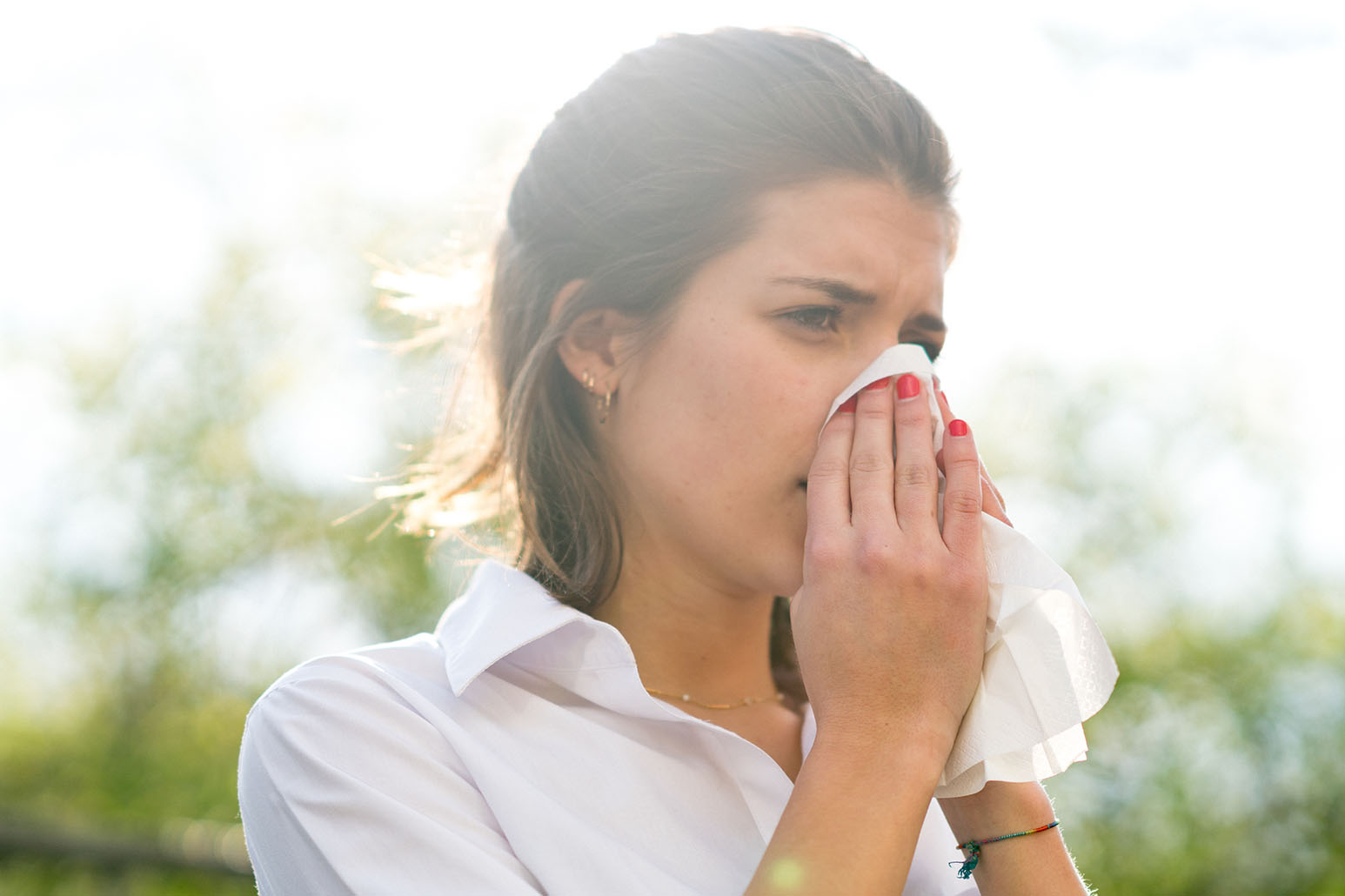Norovirus is a highly contagious stomach virus that spreads quickly in winter, causing sudden...
Read MoreEffective Monday, January 5th, Inspira Health is now at Yellow Alert Status: Masks for staff, patients and visitors in all high-risk areas across our facilities are strongly recommended.

Those who live with seasonal allergies know just how crucial medication can be during allergy season. Without it, they’ll be congested, coughing, sneezing and itching their eyes, among other miserable symptoms that can make it insufferable to step outside of the house. Underlying asthma can make those symptoms even worse and cause allergy sufferers to experience wheezing and chest tightness.

What are seasonal allergy sufferers to do? Answer: Avoid exposure to your allergens and talk to a primary care provider about medications that can control symptoms. When it comes to the latter, it’s best to do that before pollen reaches peak spring allergy levels.
Enjoy the spring, don’t dread it! Your health provider can help you understand if it is time to change your allergy medicine, add or change your nasal spray or if it is time to see an allergist for desensitization shots.
Allergy season begins before flowering trees and plants make their appearance. Those who are impacted by tree pollens may begin experiencing symptoms in late winter. It’s important to find out what’s causing your symptoms, so you can prepare accordingly. Trees that commonly cause allergies include elm, hickory, sycamore and walnut. Their pollen can cause the same symptoms as most spring allergies––watery eyes, sneezing and nasal congestion.
If you’re already experiencing some reaction to the outside world, talk to your doctor about allergy medicine ahead of spring. It may take a few different medications to find one that helps you relieve symptoms, so don’t wait until you’re clogged up and rubbing your eyes.
If you know you have a history of seasonal allergies, allergists recommend you start taking medications to alleviate symptoms a couple of weeks before they are expected to begin. Pre-treating with antihistamines before symptoms appear can help reduce inflammation and lower the severity of your symptoms.
Even with consistent treatment, you should monitor pollen counts during allergy season to stay informed about conditions. On days where the pollen count is high, it’s best to keep your windows closed in your home and car, avoid spending too much time outside, and take a shower or change your clothes if you’ve spent a lot of time outdoors.
Tree and grass pollen aren’t the only spring allergens. Mold in basements, bathrooms and kitchen areas can trigger allergies, as can dust mites in the home. Prepare for spring by changing the air filter in your home seasonally to help keep the air inside your home clean. Cleaning the damp areas of your home from mold spores can help those humid rooms from getting out of control with mold.
Get help with spring allergies. Our team of skilled family providers and staff will put good health above all else.

Norovirus is a highly contagious stomach virus that spreads quickly in winter, causing sudden...
Read More
Low testosterone can impact more than sexual health; it can influence energy, mood, muscle mass and...
Read More
Hand, foot and mouth disease (HFMD) is a common viral illness that primarily affects young children...
Read More